The underground guide to Lincoln you can't read
Because I bought all the copies.
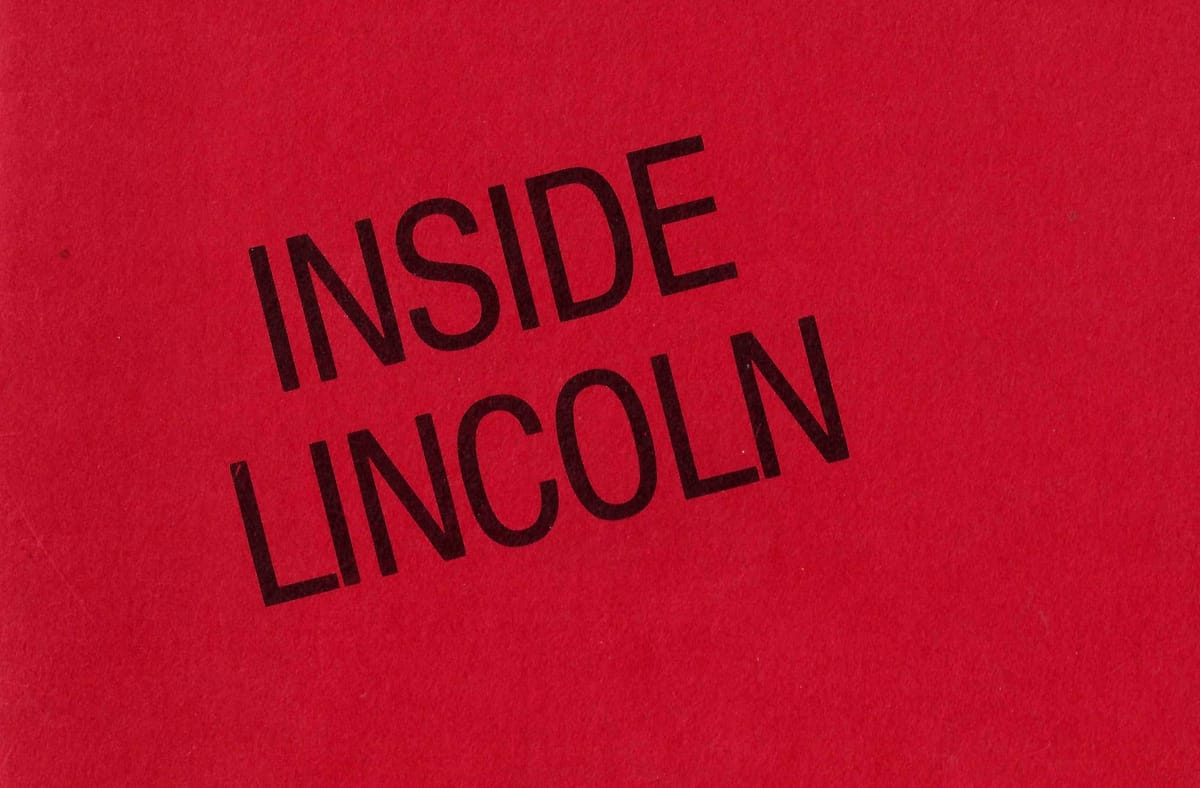
Hi,
Welcome to This Week In Lincoln. I've got something a bit different for you today. Scroll down for a post that's part book review (of a text that was published over 40 years ago), part biographical essay (about a local writer whose contributions to Nebraska's culture were immense), and part deep dive into newspaper archives (one of the nerdiest things I do for fun). It's a rather idiosyncratic bit of writing — but that feels appropriate because the book I'm talking about is quite eccentric (in a good way).
One quick thing first: I love crafting essays like this, and I want to carve out time to do more. Hopefully you find value in this kind of work that's made by a human, for other humans. I regularly complain to my friends about the problem of AI-generated slop masquerading as local writing, and I previously speculated about a different, supposedly local newsletter that's actually based in Michigan and almost certainly relies on robot labor.
Well, I recently found another newsletter that I know uses large language models to generate content (a word I use in its most derogatory sense) about Lincoln. It's called Good Day Lincoln and it's part of the Good Daily network of newsletters — now owned by the media company 6AM City. The stuff it publishes is bland and forgettable; just summaries of what real journalists are publishing. But this morning, I saw a minor but telling consequence of what happens when you cut humans out of the curating and writing process.
Here was Good Day Lincoln's summary of yesterday's football game. Notice anything weird about it?

This newsletter went out around 9 am this morning! The game was very much over by then. But instead of reporting the news — that Nebraska stomped all over Akron and cruised to an eventual 68-0 victory — the AI pulled together random parts of a KLKN story and ended up with a goofy summary that makes it sound like the game is still in progress. It sucks!
An argument I hear from AI boosters all the time is that, "Well, humans make mistakes too!" And that's true. I've already made some embarrassing mistakes while working on This Week In Lincoln, and I probably have at least four typos in this post! But I make an effort to get things right because I actually care what my audience thinks. By contrast, the kind of people who offer you this as a replacement for local newspapers are charlatans and think you are stupid. This brand of soulless, automated word salad is an insult to your time and intelligence. Reject it!
If you find anything I do here valuable — including my rants about AI, posts like the one I've written below, or the normal weekly events calendar — please consider signing up as a paying subscriber:
I don't have any paywalls right now, but I make my living as a freelance writer, and every paid subscription means I can spend less time on other stuff and more time on this. I'll never run ads or include sponsored content because I hate that shit and wouldn't subject you to it, so reader support is really the only thing I can count on. (I know times are hard, so if you can't afford to pay for a subscription, share this post with someone who'd appreciate it!)
Thanks, as always, for reading. Send feedback, good or bad to tynanstewart@proton.me
~ Ty
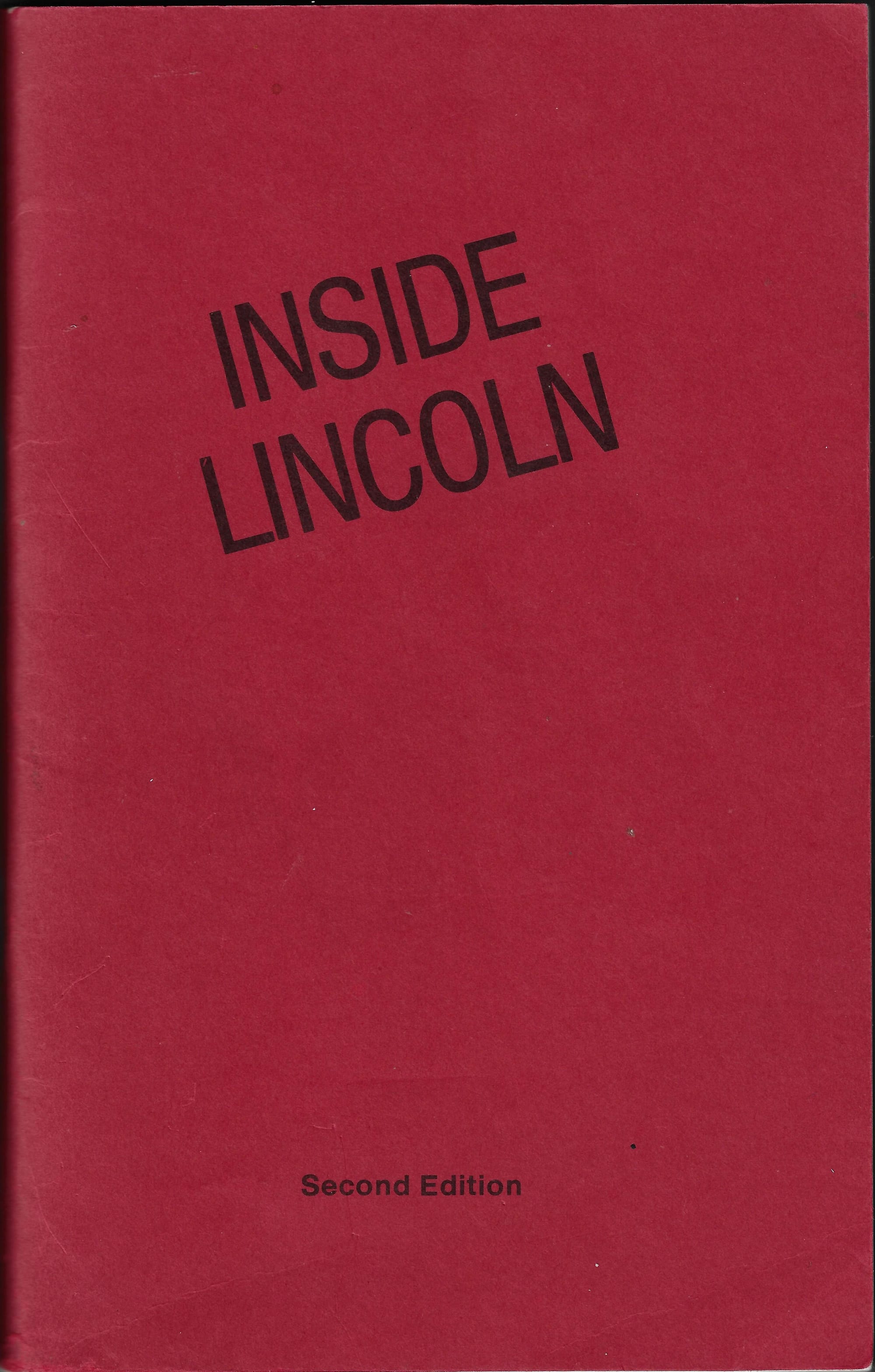
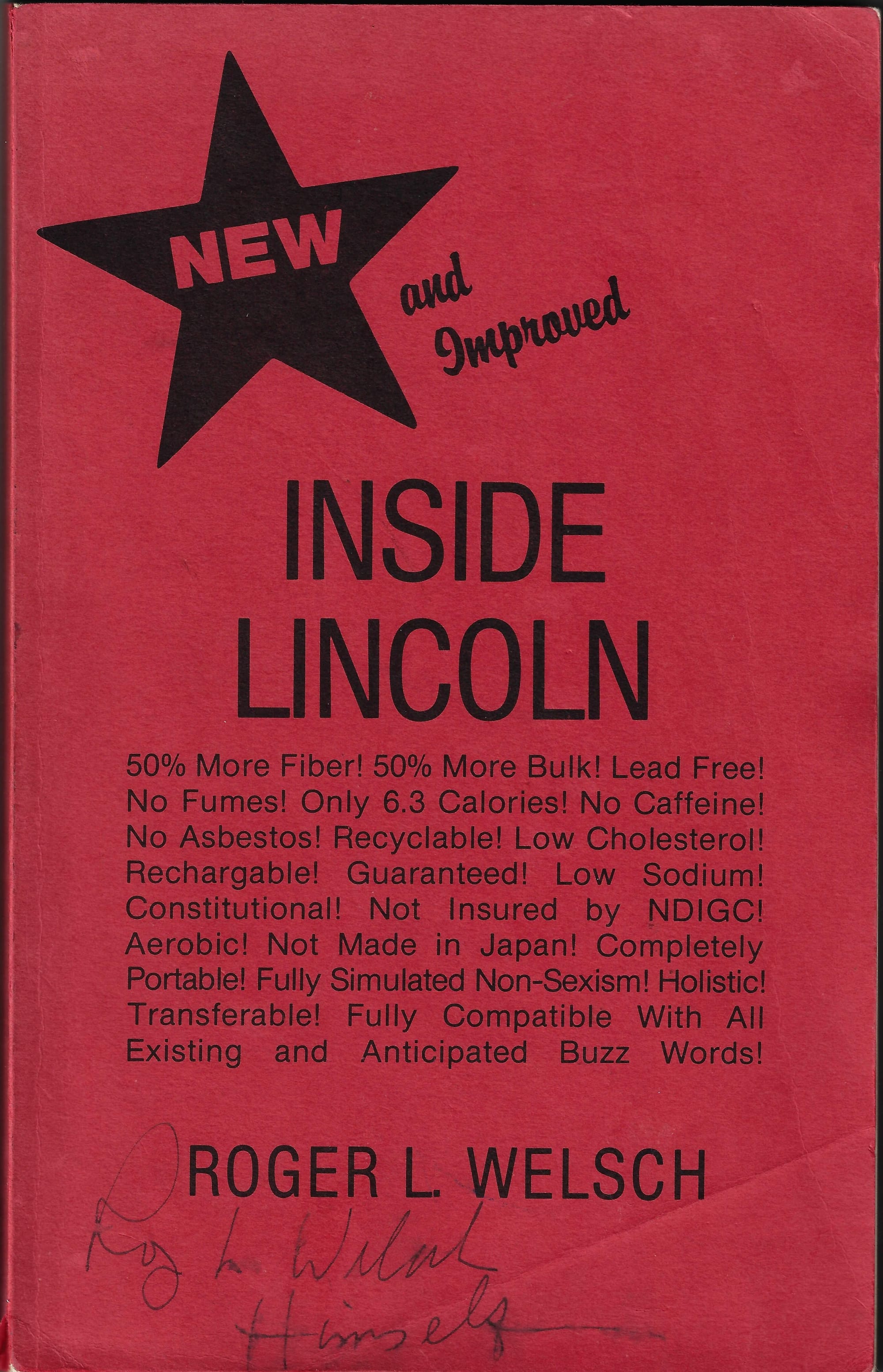
My two copies of Inside Lincoln, second and third editions, respectively.
So I admit my headline is a bit of an exaggeration.
It's not that you can't read this book, per se. Reading it is possible. It'll just take some effort on your part because finding a copy of this decades-old, long out-of-print little red manuscript isn't guaranteed — especially now that I own two copies. But if you're interested in Lincoln, tracking one (or two) down is worth the effort.
Okay, what is this book, and why should you care?
Let's start with a story: It was 1984, and Roger Welsch was angry. The Lincoln native and UNL professor had just read a book about the Star City that was so boring as to be offensive. At least, it was offensive to Welsch, who cared deeply about the place where he was born and wanted to see its authentic personality — including its charm and blemishes; its neglected gems and overrated garbage — reflected in print. So he wrote and self-published an alternative.
Here's his telling of the story from the introduction of that book, Inside Lincoln (subtitled: "the things they never tell you!"):
Last night I read a new guide to Lincoln, and it is about the dullest, most superficial reading I have done since I did my income tax last April. Small wonder that two of its three authors left town about the time it was published.
Lincoln, in its pages is a thoroughly antiseptic place that sounds about as much fun as a retired Methodist ministers' convention. The book lists sites where one can find first aid and public schools; its idea of places to eat starts with McDonald's; its idea of entertainment is jogging.
There's a lot to like about this book — and some things not to like; more on that below — but what I truly respect is that Welsch wrote from place of uncompromising and strident indignation and managed to transform that passion into good reading. I've read far too many unedited, tiresome rants in my life — some of them published in the pages of rags masquerading as intelligent, dignified publications — so I know what it looks like to do this badly.
The thing about Welsch's anger is that it works. His desire to write about Lincoln stems from a genuine love for the place, and it's the unholy mixture of love and rage that makes the book work. Well, that and his encyclopedic knowledge of the city.
He certainly has complaints, and he's willing to express them. But don't mistake this willingness to point out, say, the region's unpleasant weather extremes for actual bad feelings. Welsch would be quick to correct you on that point:
Why do I stay here if I hate it so? Where did I say I hate it? I love it. If variety is the spice of life, Lincoln is hot tamale city. I have published three very successful books on Plains tall tales; you don't get tall tales from averages. A synonym for 'average' is 'mediocre.' Averages are for dreary people. Lincoln is for people who are ready for, who relish the out-of-the-ordinary.
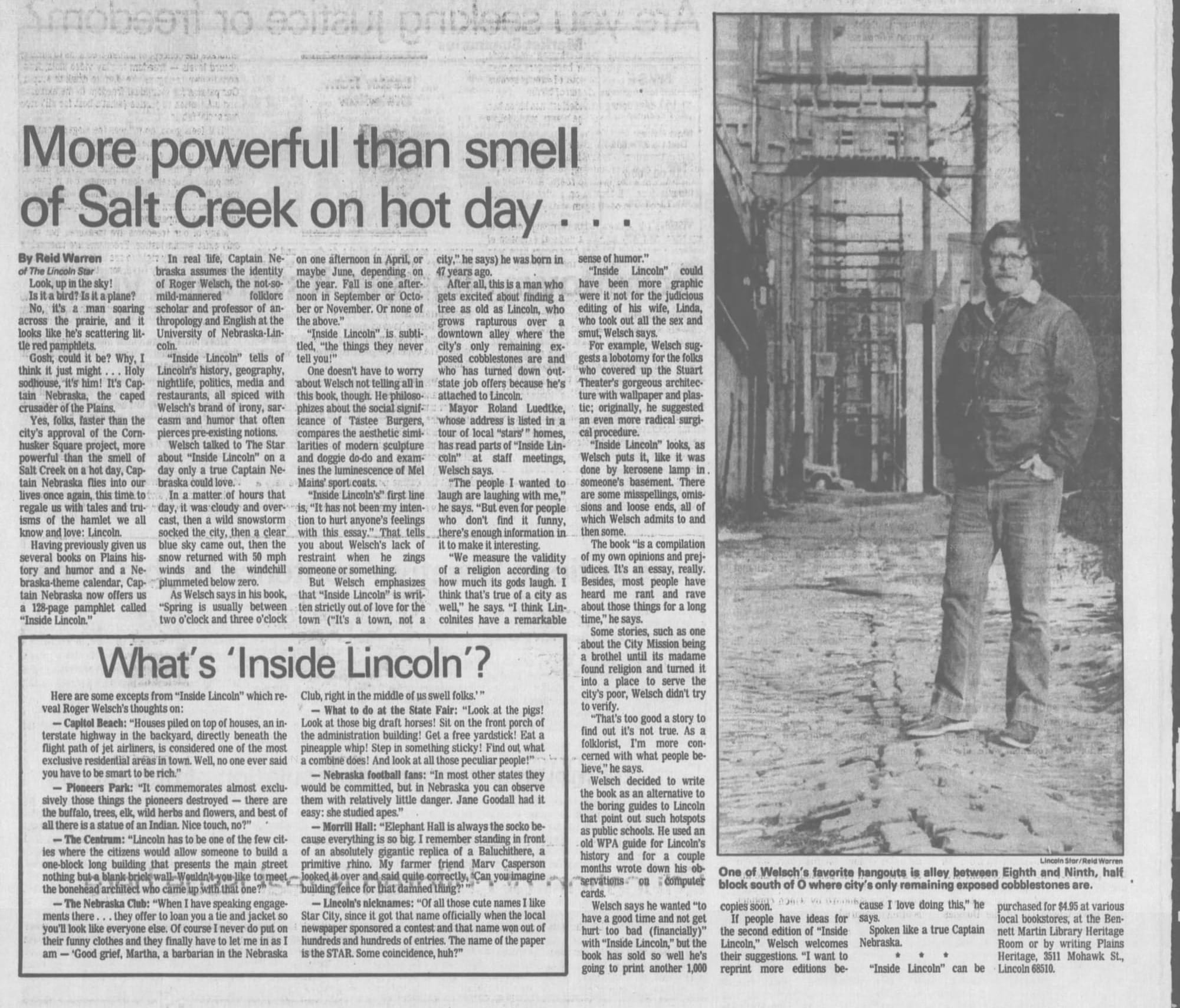
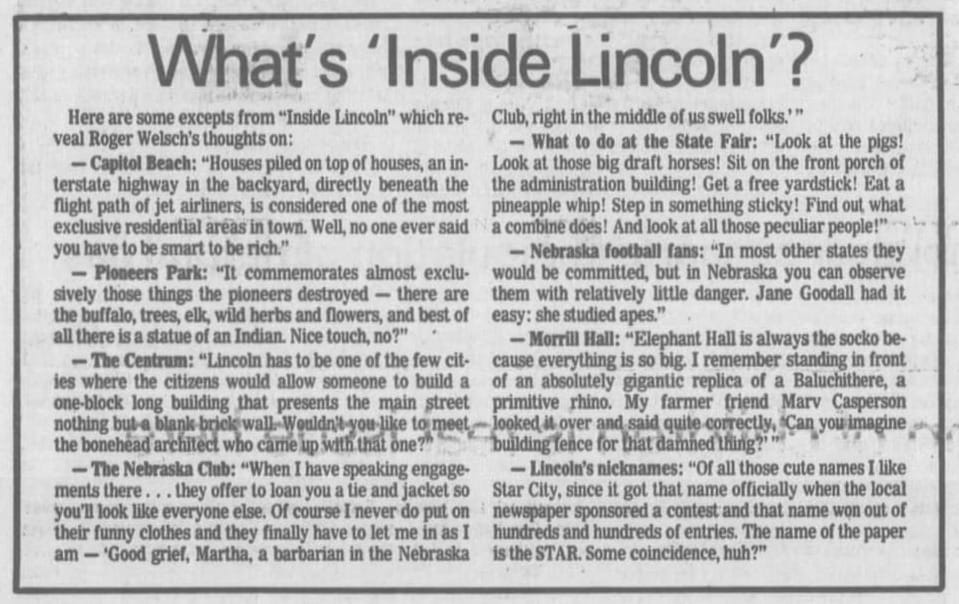

Inside Lincoln doesn't claim to be an objective accounting of what's good and bad about the city. It's very clearly an exercise in personal taste, which is precisely the appeal.
Here's an example: Welsch offers many details about the city's approach to public art in the 1980s, including a lengthy discussion of a controversial sculpture project planned for 13th and O Street. (As far as I can tell, this was never actually installed, only debated by the Lincoln City Council — though I'm not entirely sure about this. Knowledgeable readers, help?) As a coda to this multi-page diatribe against what he saw as an aesthetic blight on the senses, he offers this observation:
Just this past week the Lincoln City Council (yes, them again) wrestled with a plan to obligate 2% of any construction budget to 'art.' Proponents can't imagine why anyone would be against art. I can't either. We're not against art. We're just not convinced that these utterly forgettable pieces of junk are art. 'Abstract', it seems increasingly obvious to us, has become the refuge of the artistically incompetent.
I love abstract art! And I love when public institutions embrace abstract art! For instance, I'm a big fan (perhaps the only one) of the spiky monstrosities that adorn the 24th Street bridge in Council Bluffs.
When I first read this passage, I wrote a little snarky comment in my notes, something to the effect of: Why all the hate, Roger? But I actually appreciate that Inside Lincoln is opinionated enough that I can find something to actively disagree with. It's much better than the alternative.
Welsch is also willing to discuss parts of Lincoln that more polite, respectable books would find icky. After all, this is his guide to "the things they never tell you!" In the chapter on fun thing to do, he covers music venues and beer joints but also the city's porn theaters:
I can't imagine why, but the most recently published Lincoln guide totally missed the skin-flick houses. I'm sure it was just an oversight; perverts spend as much money as ministers, right? Well, I won't make that mistake.
The skuzziest place is Cinema X at 921 O; it has truly sleeze-bomb shorts (short films, that is) and an associated porn shop. I went there once to buy some joke items and, true to all expectations, when I came out the well-shrouded door I walked directly into about ten other University faculty members. All I could hope was that they were on their way in.
The Embassy at 1730 O is your uptown lawyer-set porno theater. It has a lobby, does not sell vibrators instead of popcorn, and if you were caught going in or out of it, you could always plead that you were there because the film they are showing won some sort of art award in Europe. It does show some of the classics and doesn't smell as peculiar as the Cinema X, I am told.
I also like this observation about Lincoln drivers, which still feels mostly true — a remarkable fact, given that this book was published four decades ago:
I have always maintained that if I were told that I was about to be dropped into any one of a hundred American cities, and they put me in Lincoln, I would know it was Lincoln. For one thing, in Lincoln, drivers move at 20-25 miles per hour on streets like O where the speed limit is 40. Side by side, they insist on clogging both lanes. On the other hand, in residential areas, where the speed limit is 25, you will see drivers smoking along at 40. On Sundays you can lower the first speed to 15 and increase the second to 45.
There's one baffling omission though: Not everyone drives so far under the speed limit on O Street. Did Welsch really not know about the city's long tradition of reckless racing?
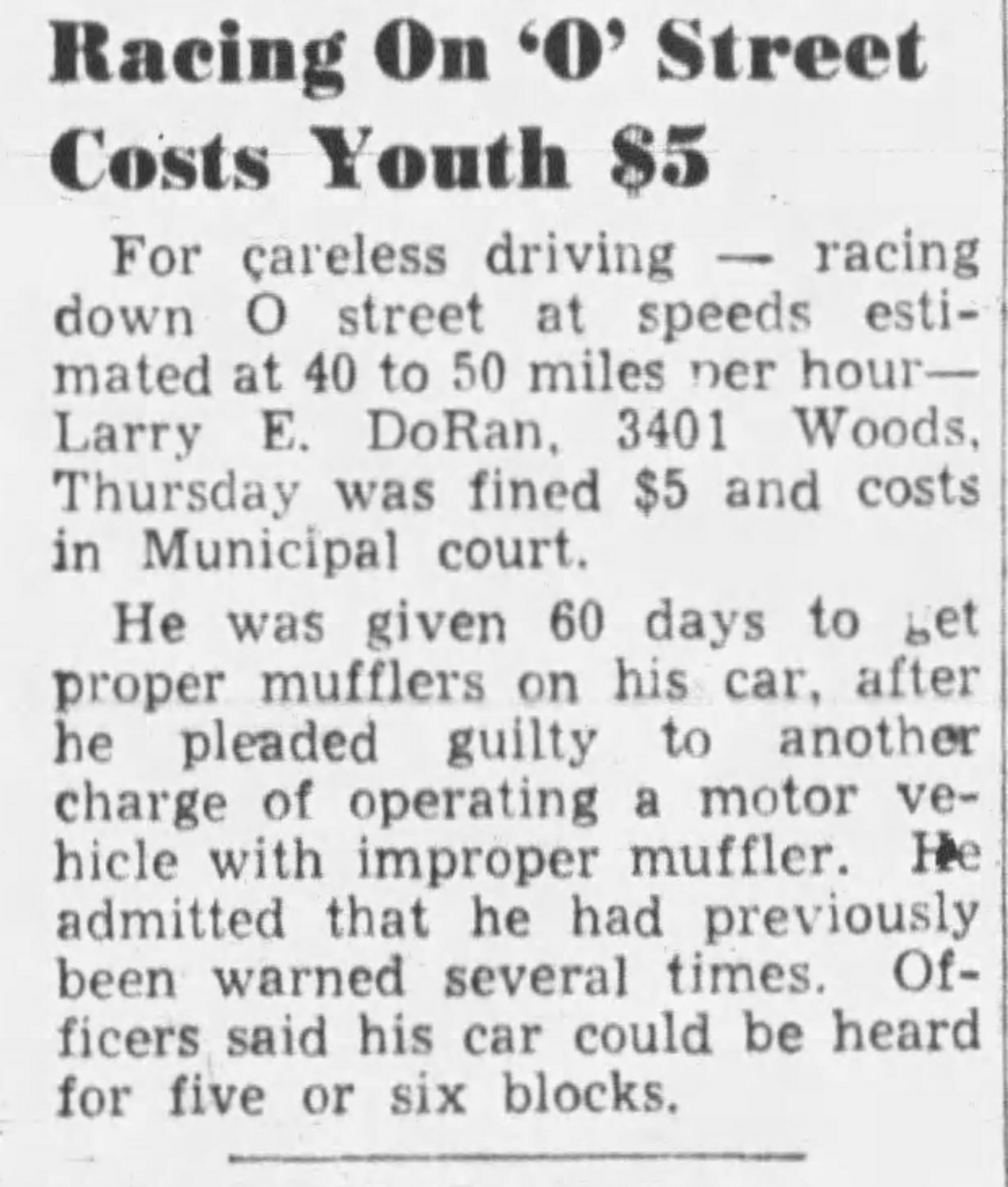
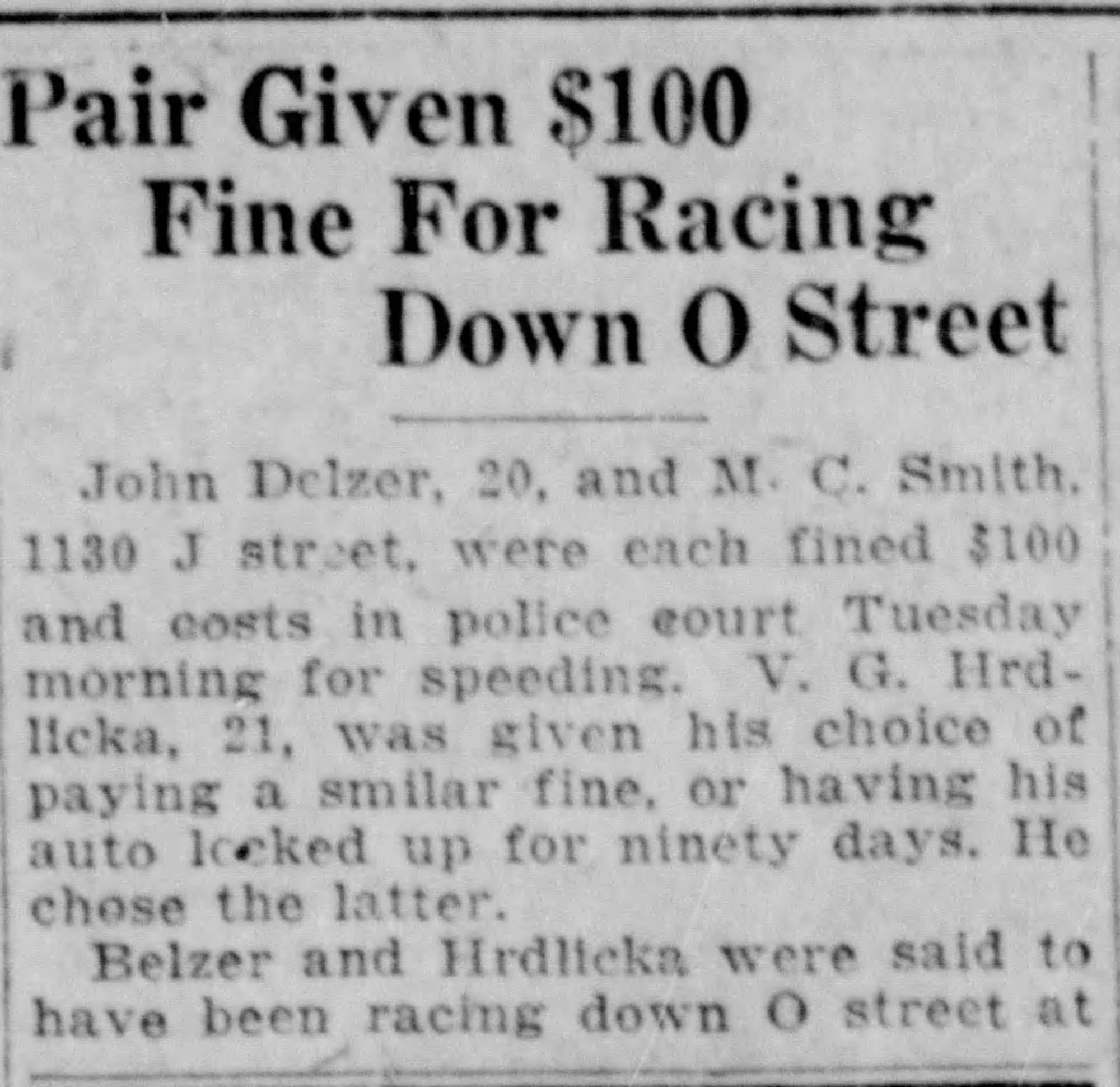
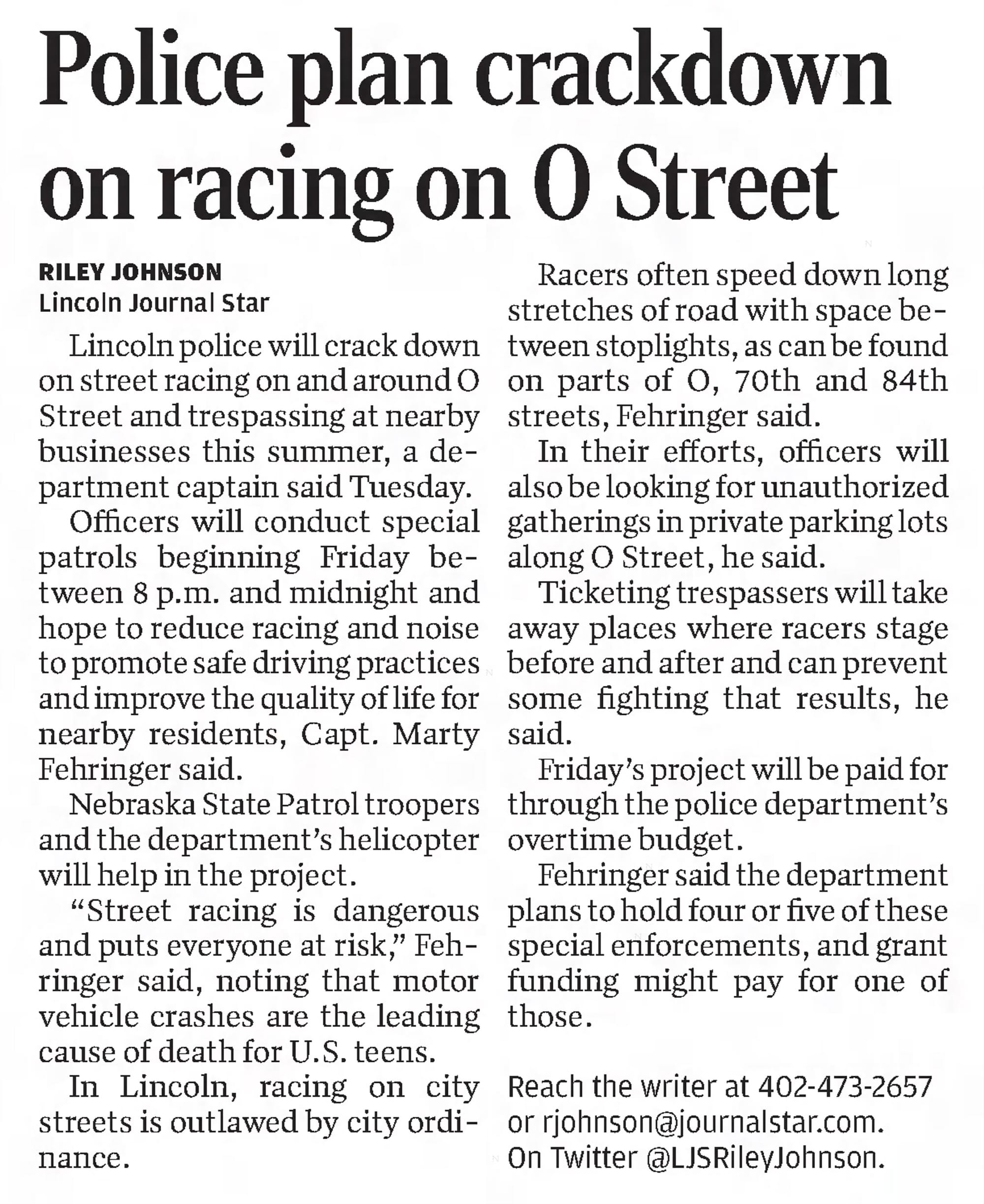
Clips from the Lincoln Star and the Lincoln Journal Star
It's worth remembering that Welsch was a folklorist, not a historian. That's not meant as a dig; I suspect he would want me to remind you of this.
But it does mean Welsch was primarily interested in recording good stories about Lincoln. If they actually happened — well, that's just a bonus. As a reporter for the Lincoln Star observed in 1984:
Some stories, such as one about the City Mission being a brothel until its madame found religion and turned it into a place to serve the city's poor, Welsch didn't try to verify.
"That's too good a story to find out it's not true. As a folklorist, I'm more concerned with what people believe," he says.
I'm neither a historian nor a folklorist, just a journalist and humble newsletter writer (which qualifies me to opine on everything and nothing). And while I appreciate Welsch's candor, this aspect of the book does annoy me. It's one thing for stories like this to circulate within a community; a city's collective understanding of itself isn't strictly factual, and society in general would be pretty damn boring if people only gossiped about things that they'd fact-checked first. What gets me, though, is that this book has become a historical document. It helped me learn more about the city's past — and I'm here encouraging you to go find a copy! — and yet it bothers me that Welsch helped solidify possibly apocryphal stories as history, whether he intended to or not. (I don't think the book is riddled with factual errors, but Welsch also doesn't exactly cite his sources.)
I definitely encourage folks to approach this book as Welsch seemed to want: It's "a compilation of [his] own opinions and prejudices," as he put it in his interview with the Star.
The book also has a few undeniably ugly moments I don't want to ignore.
Most notably, Welsch uses a well-known slur to refer to Romani people and uncritically repeats stereotypical, xenophobic anecdotes about them. The fact that he frames these as fun, colorful tales and calls the Romani "one of [his] favorite parts of Plains cultural landscape" doesn't absolve him.
It's an unfortunate blindspot in the book, though one that's obviously not unique to Welsch. In fact, this is precisely the downside of focusing primarily on "what people believe" rather than what's strictly true. Sometimes, people believe awful, racist things, and even someone as progressive and outspoken as Welsch seemingly didn't realize that, perhaps, some of the stories he was documenting were trash and should've been discarded.
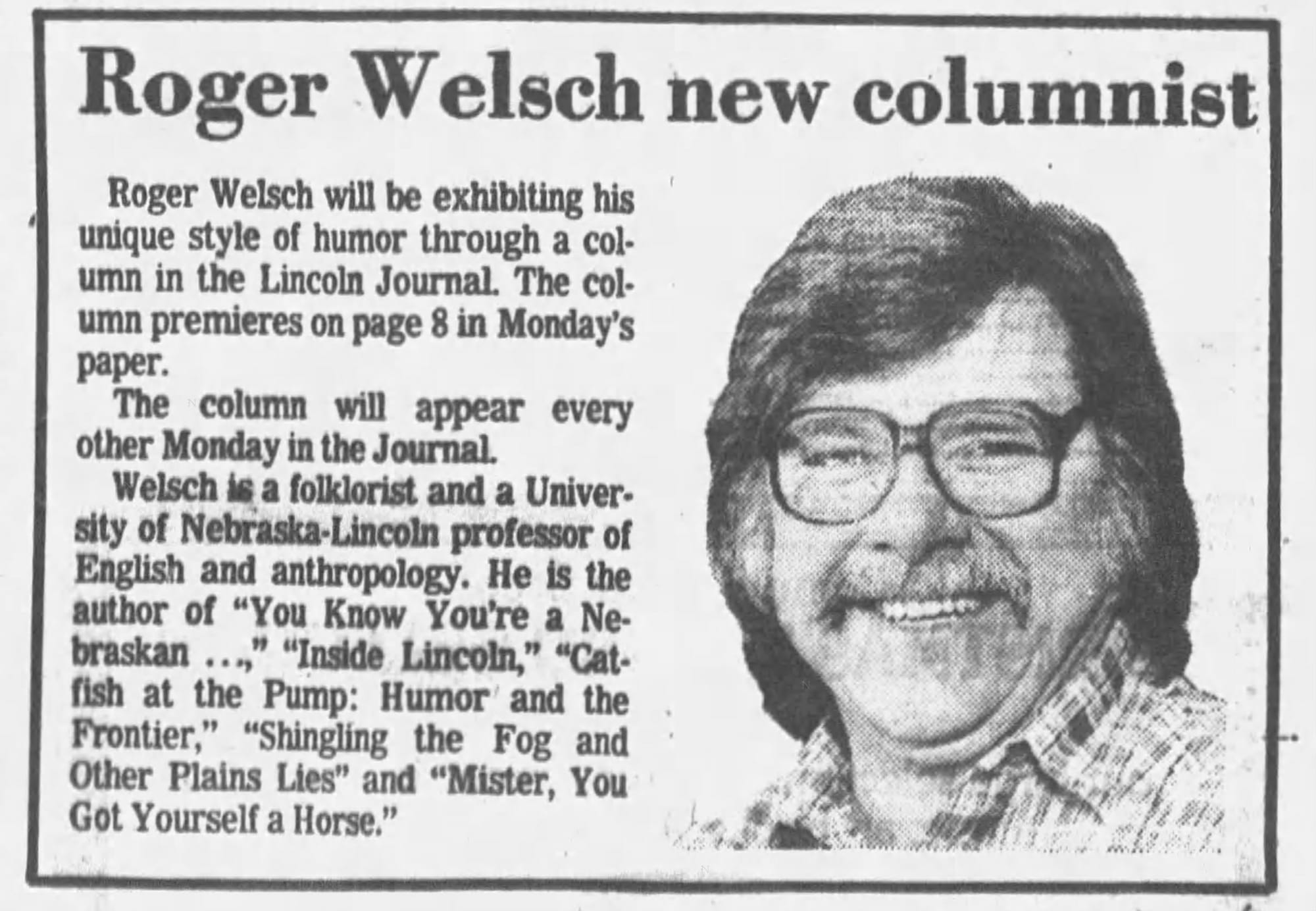
The book has a rather funny afterlife that I also wanted to mention. A few years after Inside Lincoln was published, Welsch got a gig as a columnist for the Lincoln Journal (the city's evening newspaper, which would eventually merge with the Lincoln Star to give us — well, you know). From his new perch on the paper's editorial page, he would occasionally issue corrections and reassessments of things he'd said in the book. He referred to this, sardonically, as "recant[ing] the sins" of his book.
For example, Welsch had few good things to say about Lincoln's media landscape and was especially hard on its radio stations. But in a column for the Journal, he pulled together some mild praise for KLIN mixed with disdain for its music choices:
KLIN has one program, however, so unique that I listen to it despite the miserable music, and that's what moves me to apologize to KLIN for having panned the station in "Inside Lincoln." It's Ron Dean's show on weekday afternoons. Dean is irreverent, interesting, funny, unique, clever, unpredictable, bizarre, loony — all the good stuff. I am constantly amazed that something this good survives in the middle of all the other pap and poop.
As I read and reread the book over the past few weeks, I started thinking that perhaps Inside Lincoln's most important legacy is not any particular detail or observation — some of them are dated, after all — but rather the impulse that motivated Welsch to write it in the first place. Some complaints about the Legislature notwithstanding, the book is not an overtly political text; yet there is a quiet radicalism in his insistence that place matters — or rather, that this particular place matters.
There are so many forces pushing our attention outward, flattening our conversations, insisting that everything important is happening elsewhere — perhaps somewhere else in the real world or maybe in the digital one, but certainly not here, where you live and breathe. But Welsch's commitment to writing honestly and attentively about his own local community is an antidote to this modern condition of rootlessness, and I admire it.
(That said, it's perhaps a little ironic that only a few years after publishing Inside Lincoln, Welsch left town for Dannebrog, where he spent the rest of his life. Oh well.)
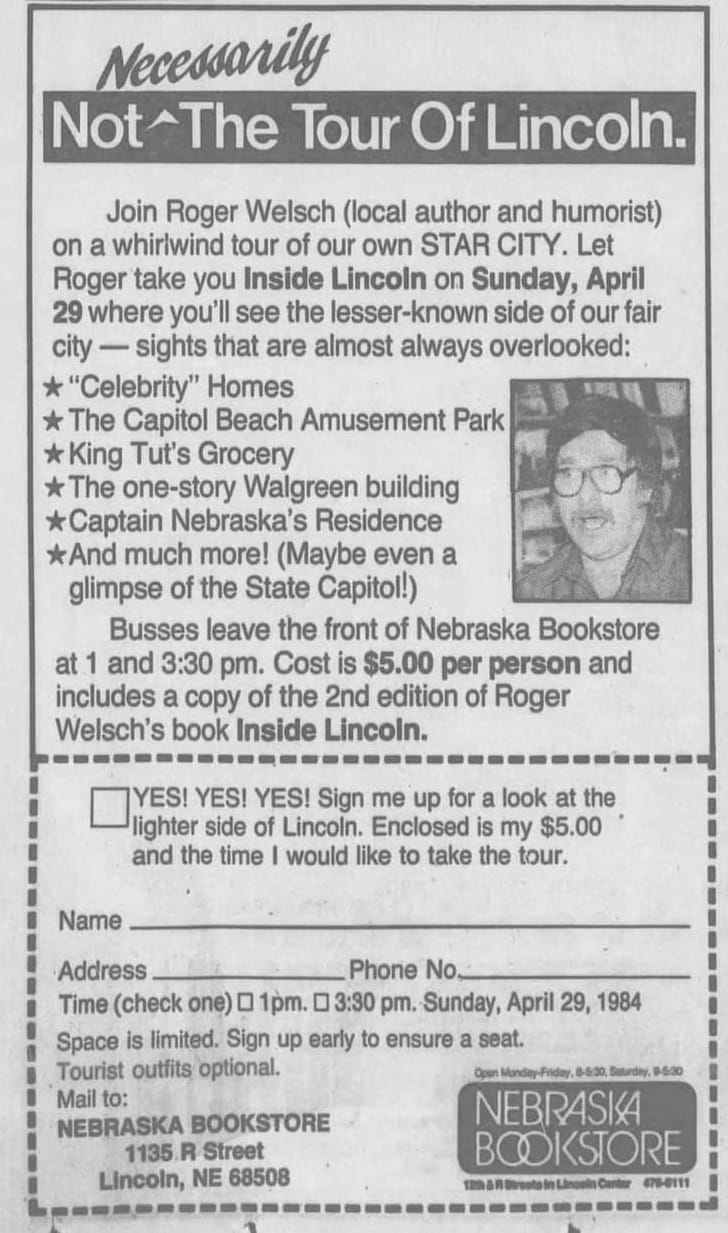
If you've made it this far and you're still interested, the library has several copies. Or get in touch! I'll lend you one of mine. But only if you promise to gossip with me about it afterwards.
And if anyone out there has a first edition they'd be willing to sell me, I'd love to complete my collection.
